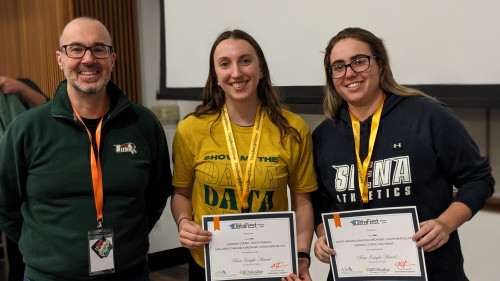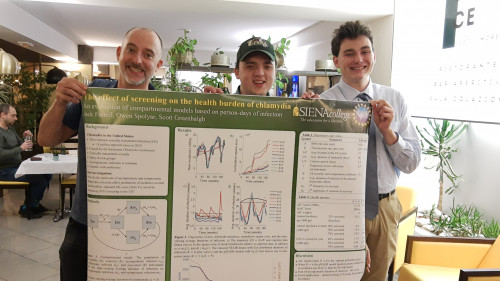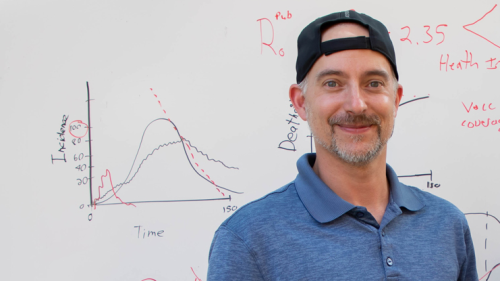
Public health policies have mixed results depending on the infectious disease. Face coverings, for example, have flattened the curve against COVID-19, but they will be of little use during a zombie outbreak
Scott Greenhalgh, Ph.D., assistant professor of mathematics, was bitten by the infectious disease bug (so to speak) while working on his doctorate in Ontario, before pursuing a postdoctoral at the Center for Disease Modeling and Analysis at Yale University. Greenhalgh now builds models to predict disease trajectories and evaluate the merit of public health policies. His work, so far, has focused on malaria, HIV, hepatitis, and measles. Up next, zombies.
Greenhalgh is a bit of a movie buff and has always been drawn to humanity's struggle for survival against the undead (some of his favorite zombie films include Shaun of the Dead, Army of Darkness, and the Evil Dead franchise). And perfectly positioned at the intersection of his professional research and cinematic fandom... zombie modeling. Greenhalgh's actually not the first to do it.
Robert Smith? (the question mark is part of his name) is a pioneer in the field. He's used zombie scenarios as a hook to illustrate the power of mathematical modeling. It's an intriguing way to make a point, plus the work is already done should the world face an uprising of undead.
Greenhalgh has applied his own methodology to a zombie uprising, and he's reached some optimistic conclusions (it starts out bad for the living, but gets better). He also calculated the effectiveness of social distancing efforts to flatten the COVID-19 curve in the Capital Region.
"In theory, we'd stand a better chance at containing a (slow moving) zombie outbreak than COVID-19, as we'd have more immediate interventions at our disposal for control (e.g., social distancing and zombie elimination vs. only social distancing).
I suppose a running joke in zombie modeling is that there has yet to be a zombie uprising, to which my response is that we disease modellers must be doing something right!"
Scott Greenhalgh, Ph.D., assistant professor of mathematics

